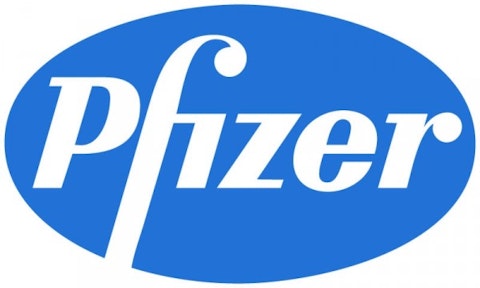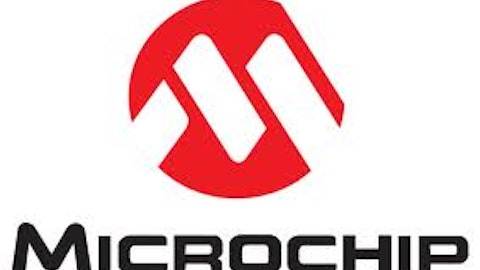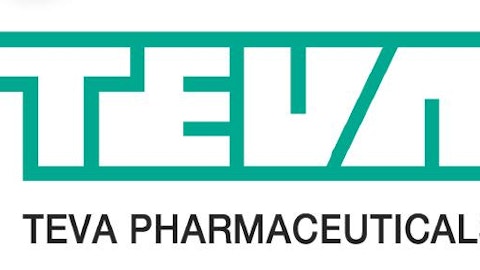Here at The Motley Fool, we believe the best way to invest and maximize returns is by buying strong companies and owning them for a long time. For even the newest investor, finding a company that has a strong balance sheet and is selling a hot product or service is a rather easy task. Anyone can quickly jump on the newest trend– from 3D Systems Corporation (NYSE:DDD) to Linkedin Corporation (NYSE:LNKD) — but that’s only half the battle when it comes to long-term investing.
If you’re going to buy a stock and hold it for the long term, first you need to figure out if it’s going to be around for the long term and determine whether its future performance possibilities merit making the purchase today. One way to do that is to assess how strong of a competitive advantage a company holds, because when that advantage no longer exists and the competition is circling, it’s only a matter of time until returns decline and the stock consistently underperforms the market.

This past week, the Dow Jones Industrial Average‘s worst-performing component was Pfizer Inc. (NYSE:PFE) which lost 2.71% of its value. The week before that, Merck & Co., Inc. (NYSE:MRK) was the worst on the index, falling 4.78% after reporting in its quarterly earnings that profits fell by 7%, largely at the hands of strong competition from generics. Merck’s management also informed investors that it won’t seek FDA approval for a osteoporosis drug in 2013, as was previously expected, but will instead target 2014.
In November, Pfizer also pointed to generic competition as it reported a crushing 14% drop in quarterly profits. Pfizer lost its patent protection on the best-selling drug of all time, the blockbuster Lipitor, in all major countries and saw sales drop 87% in the U.S. and 71% worldwide. Since Lipitor was released, Pfizer’s total net income from that single drug has been $131 billion, but in the November earnings release, sales of Lipitor amounted to only $749 million.
In the world of Big Pharma, patents are the only real competitive advantage anyone has, and that advantage is sustainable only in the short term. Once the patent expires, the generic feeding frenzy begins. In his list of 50 Jaw-Dropping Pharmaceutical, Biotech, and Life Science Statistics, Foolish colleague Sean Williams noted that of the 12,571 FDA-approved drugs, 79% have a generic version. The only thing generic manufacturers have to do is wait for patents to expire. Generic-drug manufactures such as Teva Pharmaceutical Industries Ltd (NYSE:TEVA) and Mylan Inc. (NASDAQ:MYL) are therefore positioned to realize solid returns for investors while providing less risk and volatility.
While a drug patent does last 20 years, a large portion of that time is spent in trials and the FDA approval process. Once a company finally gets approval, the clock has already been ticking for a long time, and it may have only 10 years or less of sole rights to the drug until the generic companies can move into the market with a copy of the compound. Once that happens, profits dry up quickly.
We all need the big brand-name drug companies such as Pfizer and Merck. Their endless efforts of searching for the next big drug will keep innovation moving forward, which ultimately gives everyone around the world the ability to live longer, healthier lives. But these companies are also continuously under pressure to produce new drugs, either through research or acquisitions, to reward shareholders in both the short and long term. And every new research project or acquisition is risky, because each one is so capital-intensive with no guarantees.
The generic drug industry also has an important purpose that it serves well — to prevent monopolies from forming and keep prices low. The generic companies carry less risk and lower costs because the off-patent drugs they make are already proven. But the trade-off is that they give investors less chance of an upward reward, because of the lower risk.
The tortoises and the hares
It’s unlikely that a generic drug will ever make $131 billion in revenue, the way Lipitor did for Pfizer, but on the other hand, I wouldn’t bet that Pfizer or any of the other major drug manufactures will enjoy Lipitor-like blockbuster success on a regular basis. In my opinion, the slow but consistent revenue from the generics beats the fast but erratic revenue of the major pharmaceutical companies.
The article 2 Dow Stocks We All Need but Shouldn’t Own originally appeared on Fool.com and is written by Matt Thalman.
Fool contributor Matt Thalman owns shares of Mylan. Follow Matt on Twitter: @mthalman5513. The Motley Fool recommends and owns shares of 3D Systems and LinkedIn and has options on 3D Systems.
Copyright © 1995 – 2013 The Motley Fool, LLC. All rights reserved. The Motley Fool has a disclosure policy.





